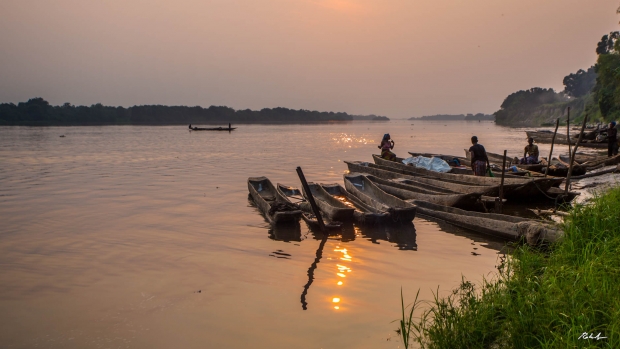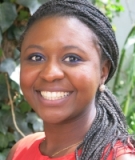Why I Love the Congo River
I come from the Democratic Republic of Congo, a country known to the world as war-torn, poor, chaotic and resource-rich. None of that really matters to me, except for the Congo River, the pride of the nation.
I love the Congo River. The river and its tributaries have played a considerable role in shaping Congolese culture and promoting unity and identity. The river itself is a main source – and sometimes the only source – of transportation from a village to a city, the ocean or neighboring countries. It is our lifeblood.
Today, large dams are threatening the Congo River as well as many other African rivers (including the Nile, Zambezi and Niger). And the world’s largest dam project, the Grand Inga, is planned for my country.
As part of my job, I frequently visit villages where people have been displaced by dams. One has to empathize with affected communities to comprehend the damage inflicted on them. I often think of what dam-affected communities go through, and I always ask myself how I would feel if I were asked to leave my home for a place unknown, with no assurance of a job or how I would survive.
People may dismiss the human cost of relocation, but experience has shown that it’s very hard to restore livelihoods. In the majority of cases, dam-affected communities are not compensated for lost livelihoods. This is true worldwide. And worse, dams cheat future generations of opportunities.
During my visits to communities fighting a dam, I’ve met a number of women selling cash crops to provide for their families. They may not know how to read or write, but they know how to grow cassava or nuts – I don’t. They work hard to feed their families and send their children to school. A dam is a threat to their lives and their children’s futures.
This kind of development raises hard questions.
Is it right to sacrifice the lives of 100 people for 100 MW? Is it possible to make one person’s life better without making someone else worse off?
Water is our lifeline, but our governments rarely recognize the true value of river. Instead, they make false assurances. I have heard one statement quite often: “All impacts will be mitigated.”
But in Africa, after dams have been completed, not all impacts were mitigated. People continue to live without electricity, experiencing power cuts and extremely high energy costs, while facing growing inequality.
Meanwhile, we continue to lose aquatic biodiversity and clean water. Beautiful gorges have been drowned, waterfalls have disappeared, and our grand canyons have gone underwater.
And for whom? 84% percent of rural Africans still live in the dark. Large dams tend to supply electricity to large industry (mostly extractive industries like mining in the DRC) and to people already connected to the grid. They deny energy to the majority who are not grid-connected. Instead, energy is sent thousands of kilometers away to big industry and city centers.
Big dams often leave suffering in their wake. In fact, our African states have left behind a lasting devastating legacy of dam projects that have left people landless, destitute and without electricity.
I would like to see my country develop, and I would like to see its people benefit from that development. I would like to see people have access to resources to improve their poorly structured huts. I’d like them to receive electricity, paved roads, running water, hospitals and good schools for children. I would like to see their lives transformed and their opportunities for employment widened.
But infrastructure must be sustainable, and it must not bankrupt my country but conserve our rich flora and fauna, our rivers and beautiful landscape. Our resources in the Democratic Republic of Congo, if well-managed, are sufficient to benefit all my fellow countrymen.
Without proper (and properly funded) river authority basins or governing bodies, African rivers and riverine communities are left at the mercy of the governments and corporations.
Each one of us has a role to play. International Rivers has provided me with a platform to fight for a cause I believe in. Please help us fight for our rivers and those people who depend on them.
I will leave you with an African proverb, which says that “in the moment of crisis, the wise build bridges and the foolish build dams.”
I choose wisdom.
Ange Asanzi is the Africa Program Associate for International Rivers.




